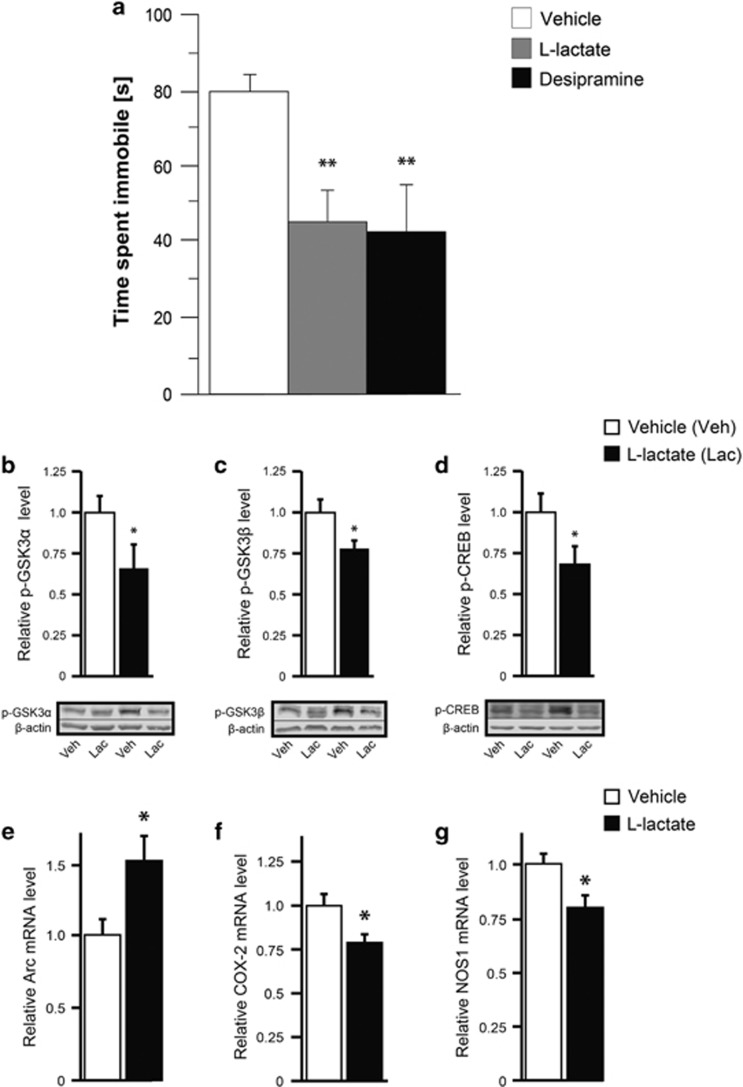Figure 2.
l-Lactate induces antidepressant-like effects in the forced swim test and regulates downstream signaling and target genes. (a) Acute peripheral administration of l-lactate produces antidepressant-like effects in the forced swim test (FST). Mice received a single intraperitoneal injection of vehicle (0.9% NaCl, n=17), l-lactate (1 g kg−1, n=17) or desipramine (20 mg kg−1, n=12) and were subjected to behavioral testing 1 h later. Both l-lactate and desipramine significantly reduced immobility in the FST as analyzed by one-way analysis of variance (ANOVA), followed by Tukey's post hoc test (F2,4=6.564, P<0.05). Data are the mean±s.e.m. **P<0.01 compared with vehicle-treated mice. (b–d) Phosphorylation levels of glycogen synthase kinase-3α (GSK3α), GSK3β and cAMP response element-binding protein (CREB) in the hippocampus were reduced 1 h after a single intraperitoneal injection of l-lactate, as shown by western blot analysis. Data are the mean±s.e.m., n=10 mice per group. *P<0.05 compared to vehicle-treated mice (Student’s t-test). (e–g) Quantitative PCR analysis revealed that a single intraperitoneal injection of l-lactate regulated the expression of Arc, cyclooxygenase-2 (COX-2) and nitric oxide synthase 1 (NOS1) mRNAs. Arc mRNA level was increased in the hippocampus of l-lactate- compared with vehicle-treated mice. COX-2 and NOS1 mRNA levels were decreased in the hippocampus of l-lactate- compared with vehicle-treated mice. Data are the mean±s.e.m. (vehicle n=16, l-lactate n=17). *P<0.05 compared with vehicle-treated mice (Student’s t-test).

